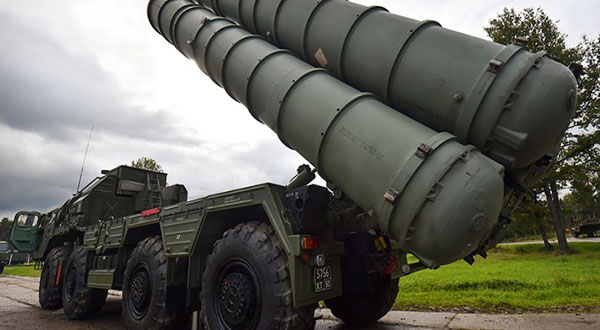There’s been much speculation circulating in the media around the possibility of Russia supplying its S-300 surface-to-air missile systems to Syria after the latter was attacked by three Western nations – the United States, France and the United Kingdom – in response to an alleged use of chemical weapons by government forces in the city of Douma.

In this regard, Russian presidential aide for military technical cooperation, Vladimir Kozhin, made clear that the country is neither supplying S-300 surface-to-air missile systems to Syria, nor negotiating a potential delivery to Damascus, adding that the Syrian forces had “everything they needed.”
Reacting to reports about potential S-300 deliveries to Damascus, Russian state arms exporter Rosoboronexport expressed readiness to supply the Arab Republic with air defense systems if Russia’s top leadership gave the green light.
In late April, Syrian Ambassador to Russia Riyad Haddad told reporters that S-300 systems had been delivered to the war-ravaged country a month ago; his words, however, were denied by a Russian military and diplomatic source.
In the wake of last month’s tripartite strikes on Syria, Russian Foreign Minister Sergei Lavrov told the BBC that Moscow was ready to consider any options to help Syrian forces to curb further aggression even though “several years ago we [Russia] decided not to supply S-300 systems to Syria at our partners’ request.”
Later, the minister specified that Russian President Vladimir Putin had discussed the issue of S-300 supplies to the Arab Republic with the Defense Ministry; however, the decisions “have yet to be determined.”
 WILAYAH NEWS VOICE OF THE GLOBAL AWAKENING
WILAYAH NEWS VOICE OF THE GLOBAL AWAKENING






